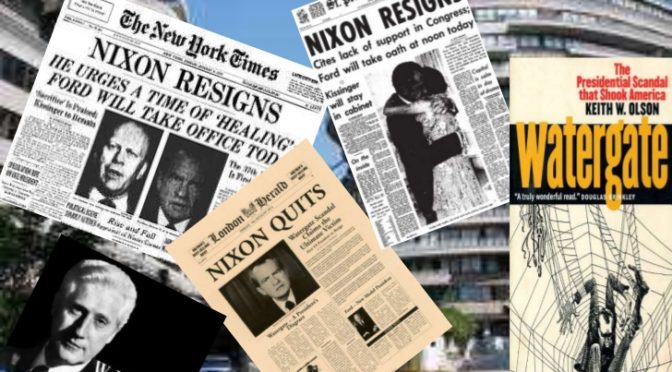Forty-five years ago, some goons broke into the Democratic Party national headquarters office in a business complex in Washington, D.C.
Little did they know that they would change history.
The Watergate scandal gave birth to a new name for political scandals. They attach the “gate” suffix on every transgression. There’s only one scandal worthy of the “gate” identifier.
The “third-rate burglary” — which occurred June 17, 1972 — became swallowed up by what would come afterward. That would be the cover-up orchestrated by President Richard Nixon.
Two dogged Washington Post reporters — Carl Bernstein and Bob Woodward — were turned loose eventually to follow the leads they got suggesting that the White House was involved in the burglary. They hit pay dirt and opened up a new wave of interest in investigative journalism. They lured a generation of young reporters into the craft; I happened to be one of them.
Forty-five years later, the memory of that earlier time is coming back to the fore as another president flails about while a special counsel examines whether he and/or his campaign colluded with Russian hackers seeking to influence the 2016 election outcome.
There won’t be a “gate” attached to this matter — even if it explodes into a scandal that rivals the granddaddy of political scandals.
Cable news networks are going to look back at that break-in. They’ll examine the journey upon which the nation embarked in the weeks and months to follow. We’ll get to relive that “long, national nightmare” referred to by yet another president, Gerald R. Ford, who took office when President Nixon resigned as a result of the Watergate cover-up.
Yes, it was a dark time. However, as President Ford noted, “The Constitution works.” Watergate put the Constitution to its supreme test and in the process, the scandal delivered to Americans a shining illustration of the founding fathers’ brilliance in crafting a government.

